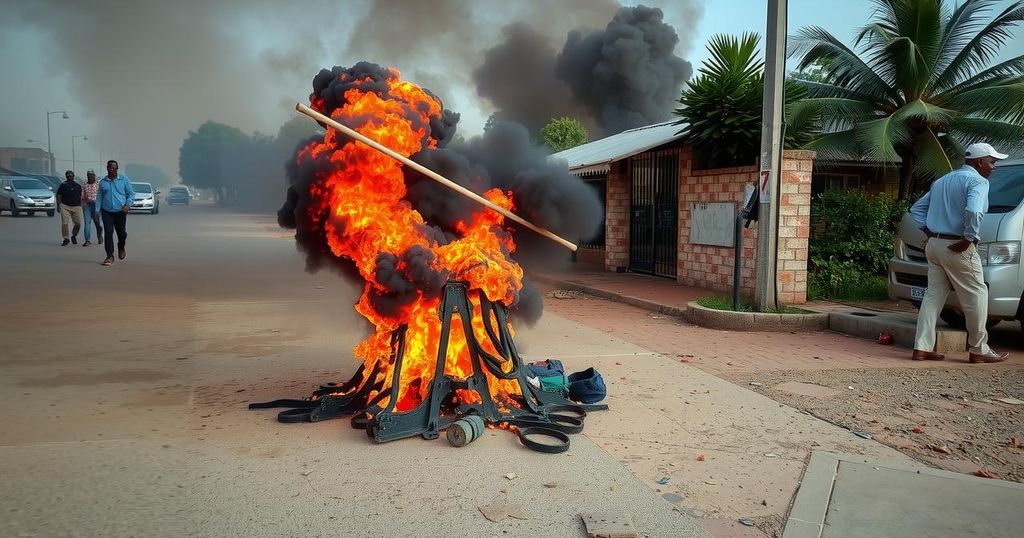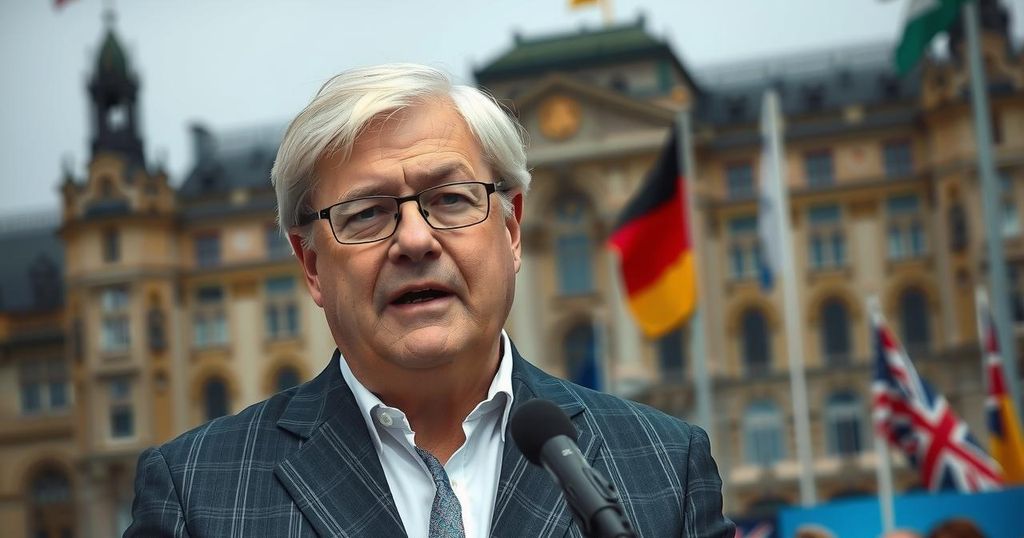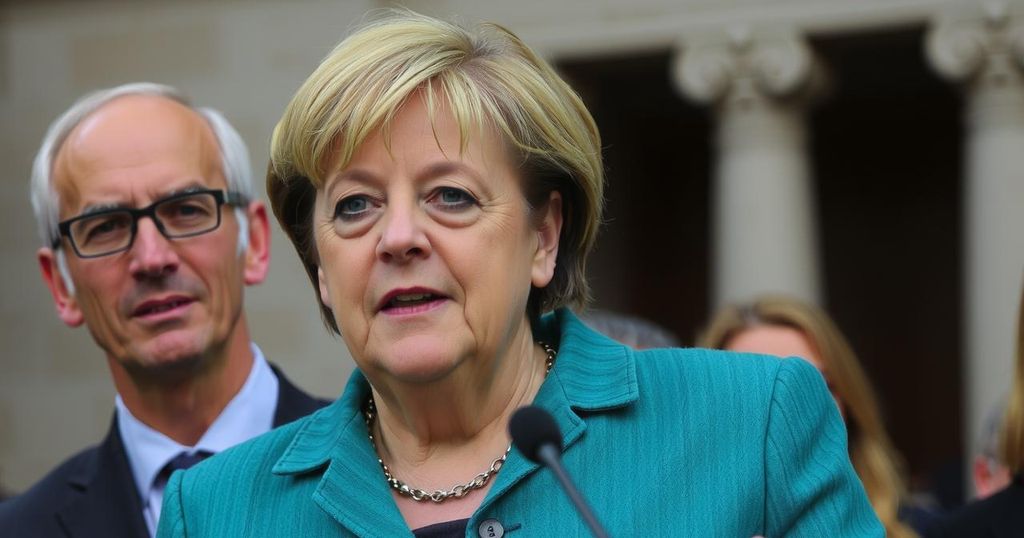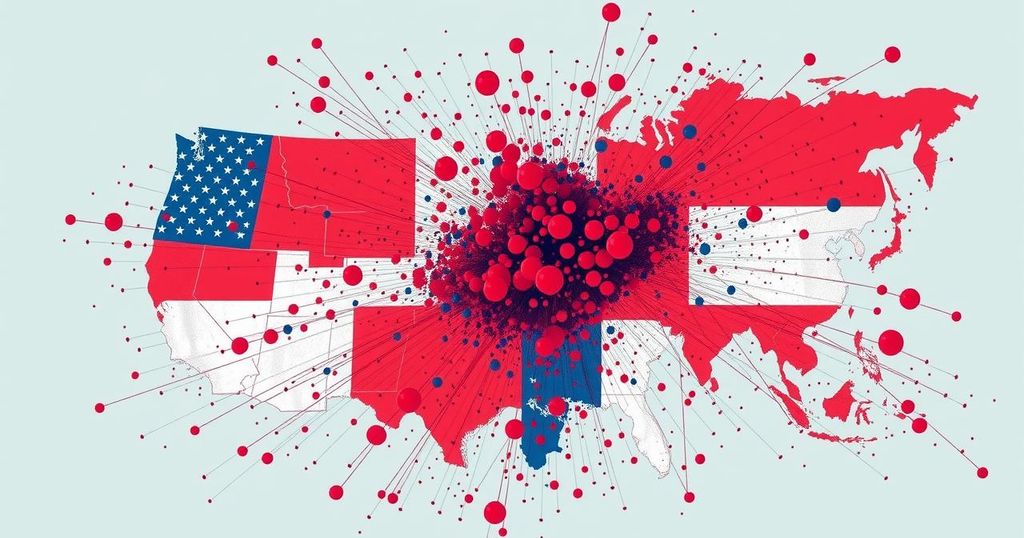Mozambique Unrest: Understanding the Current Crisis
Mozambique faces severe unrest with over 250 deaths following contentious presidential election results. Protests against the ruling party, Frelimo, have escalated into violence, resulting in widespread civil disorder and a declaration by the opposition leader claiming victory, urging citizens to shut down the country. The situation reflects deep societal discontent and poses serious threats to national and regional stability.
Mozambique is currently experiencing severe unrest following a contested presidential election, with over 250 fatalities reported amid widespread protests against perceived election fraud by the ruling Frelimo party. Since the Constitutional Court’s endorsement of the disputed election results on December 23, violence has escalated nationwide. Discontented citizens have resorted to extreme measures, including burning tires, vandalizing property, and creating informal roadblocks. The situation is akin to a social uprising, as emphasized by human rights activist Cídia Chissungo, who noted the intensity of the unrest. The opposition leader has declared himself the rightful victor and urges citizens to paralyze the country in protest.
The unrest in Mozambique marks the worst violence linked to electoral disputes since the end of the civil war over three decades ago. The turmoil intensified after the results of the presidential election, which took place in October, were upheld amidst allegations of rigging. The violent protests and confrontations with authorities pose significant concerns not only for Mozambique’s stability but also for the surrounding region, given the country’s critical role as a strategic port connecting southern Africa to the global market.
In summary, the political climate in Mozambique is wrought with tension and conflict, primarily stemming from disputed electoral results. The resulting violence has claimed many lives and disrupted daily life, marking a pivotal moment in the nation’s history. The actions of the opposition and the government’s response will be crucial in determining the future trajectory of Mozambique and its implications for regional stability.
Original Source: www.nytimes.com




Post Comment